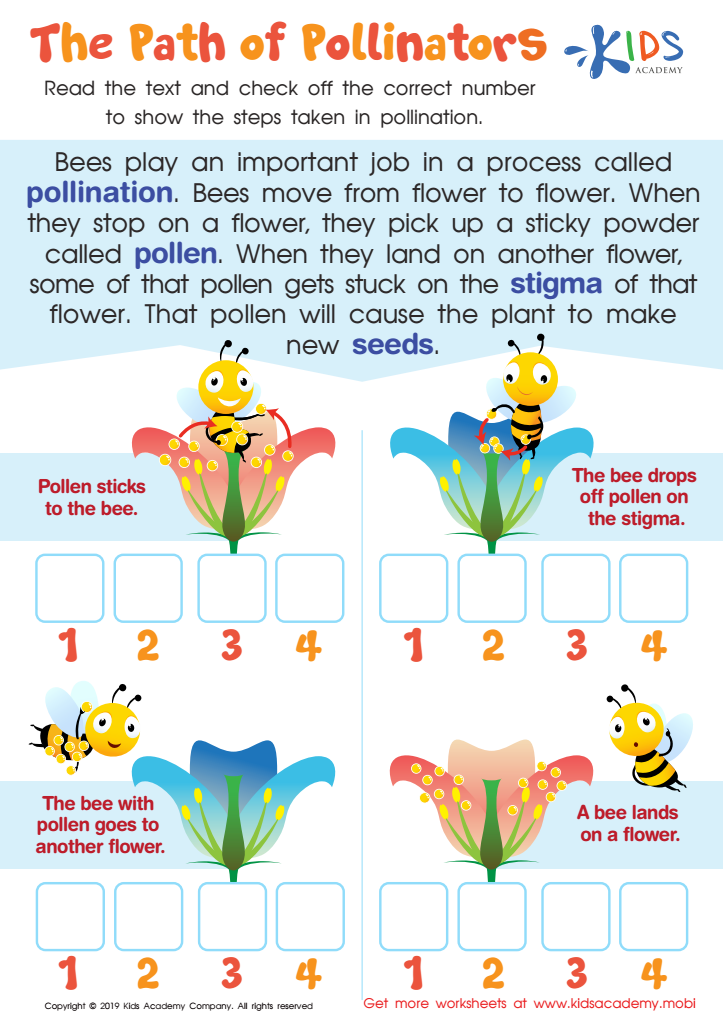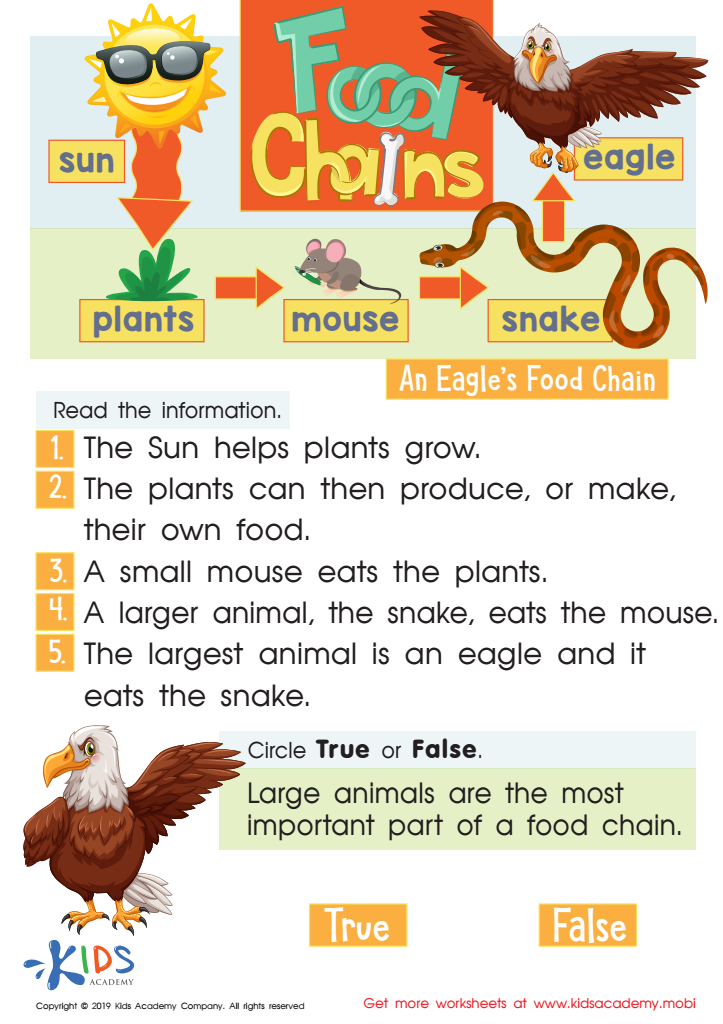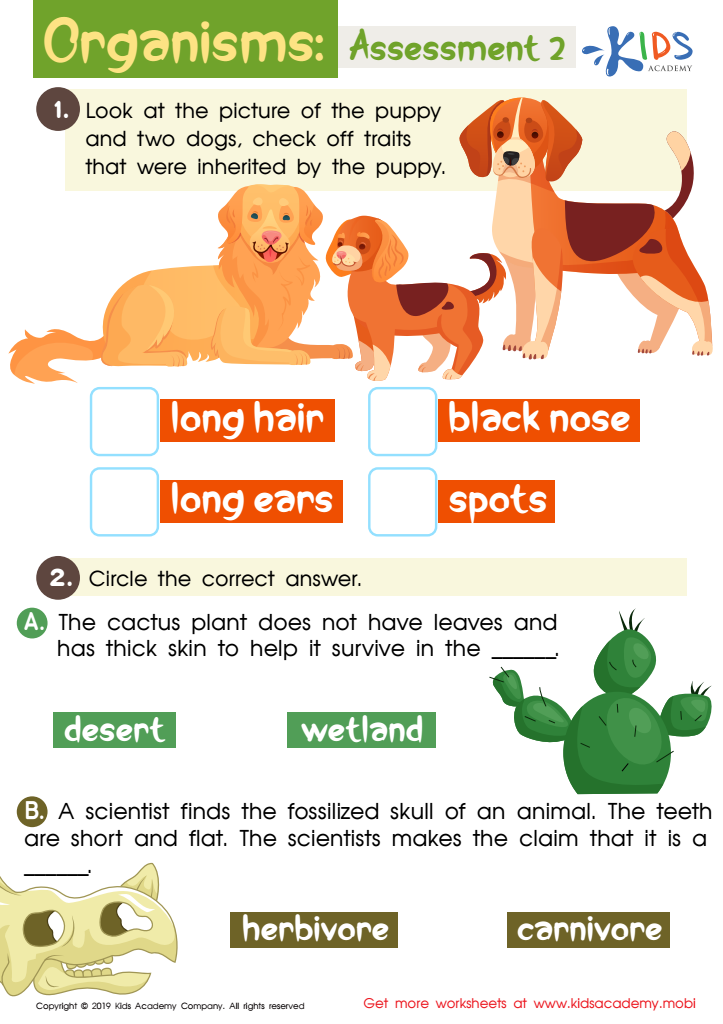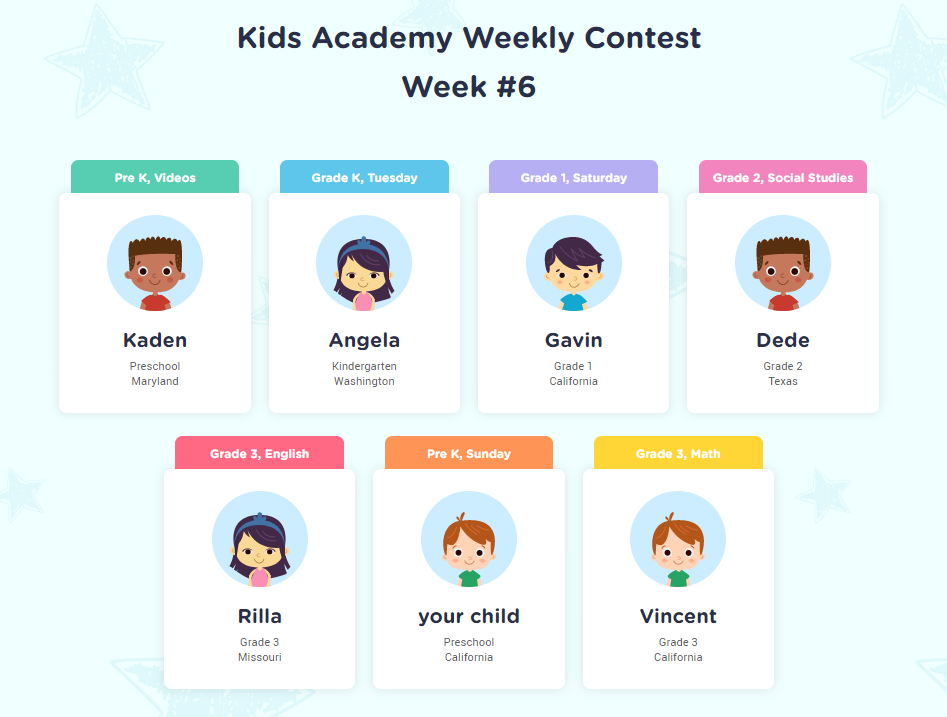Learning about ecosystems Science Worksheets for Ages 5-9
4 filtered results
-
From - To
Discover the wonders of ecosystems with our engaging science worksheets designed for children aged 5-9! Our thoughtfully crafted materials introduce young learners to the intricate interrelationships within nature, where plants, animals, and their environments coexist. Each worksheet focuses on key concepts, helping kids explore topics like habitats, food chains, and biodiversity in fun and interactive ways. These resources encourage critical thinking, creativity, and a love for the natural world, making science exciting for young minds. Perfect for classroom activities or at-home learning, these worksheets allow children to connect with their environment while developing essential science skills. Start exploring ecosystems today!


Pollinator Positions Worksheet


The Path of Pollinators Worksheet


Food Chains Worksheet


Organisms: Assessment 2 Worksheet
Learning about ecosystems is crucial for children aged 5-9 as it lays the foundation for environmental awareness and stewardship. At this age, children are naturally curious about the world around them, making it an ideal time to introduce them to the concepts of ecosystems—how living organisms, including plants, animals, and humans, interact with each other and their environment.
Understanding ecosystems fosters critical thinking and observation skills. Children learn how natural systems function, recognize the interdependencies of various species, and appreciate the balance necessary for sustaining life. By engaging in hands-on activities and discussions about ecosystems, children develop a sense of responsibility towards nature, which can influence their attitudes and behaviors as they grow.
Moreover, early exposure to these topics encourages empathy towards all living things, making them more likely to care for the environment. It also aligns with curricula in science education, promoting inquiry-based learning, and supporting cognitive development. Parents and teachers who prioritize ecosystem science contribute to cultivating a generation of informed and environmentally conscious citizens, ready to tackle challenges such as climate change and biodiversity loss. In essence, nurturing this knowledge today can lead to a more sustainable and thriving planet for future generations.
 Assign to My Students
Assign to My Students



















